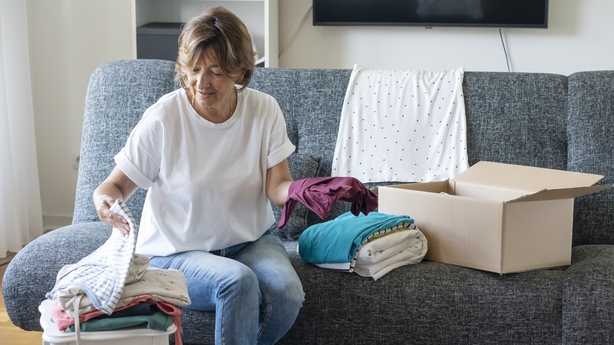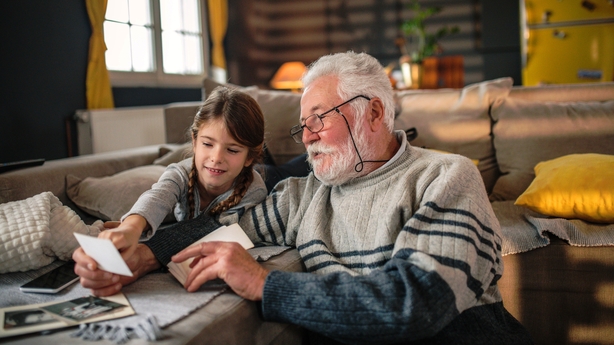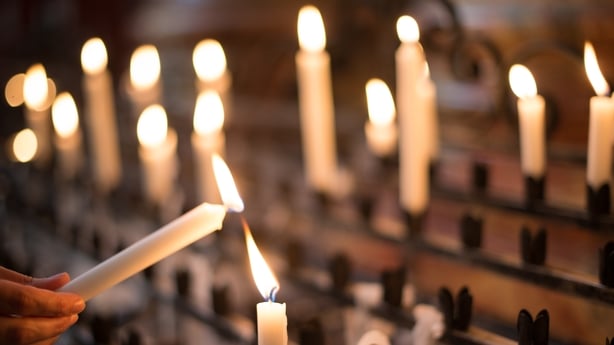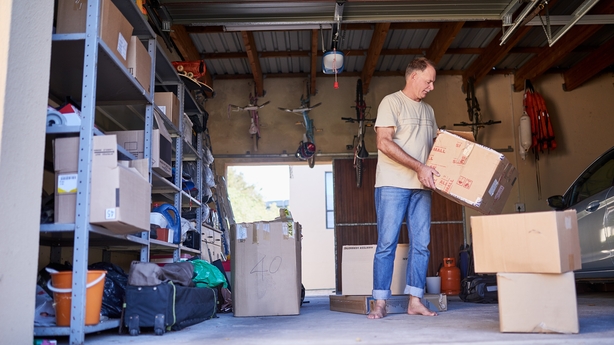Writer Ann Ingle and professional organiser Vera Keohane talk about Swedish Death Cleaning, a way of shedding unwanted possessions to make things easier for your loved ones when you are gone. Listen back above.
Swedish Death Cleaning may sound grim, but it's just another way of making life easier for your loved ones when you're gone.
The idea is to gradually let go of things you don't love or need. This will liberate your family from the hassle of dealing with your possessions while they are coping with the grief of losing you.
It seems like an odd thing to think about when you're relatively young and healthy, but professional organiser Vera Keohane says it's appealing for many people, including herself. She's started the process in her own life; as has writer Ann Ingle. Both women spoke to Brendan O'Connor about why 'death cleaning' is such a liberating and life-enhancing idea.

Vera says you can start the death cleaning process at any age, but she recommends starting any time after your mid-40s, as she tells Brendan:
"I break down life into the seasons: Spring, Summer, Autumn, Winter. So Spring is like 1-25, Summer is 25-45, our Autumn is 45-65 and the winter is 65 and beyond and really in the Autumn of our lives is when to take stock of what we own."
Writer and former local newspaper editor Ann Ingle lives with her youngest daughter Katie and her family. After raising eight children to adulthood, Ann has moved four times since living in the original family home.
Each time she's moved, Ann has shed unwanted items and she's now in the happy position of knowing she won't be leaving her kids with a mountain of stuff to sort out in the future:
"Everything I own is in one room, and that’s a really freeing thing to me. And I know that the rest of my children, my eight children are delighted to know that they do not have to come and sort out a whole load of stuff when I’m gone, because it’s all sorted and taken care of."

Ann has put a fair bit of thought into what'll happen when she dies and she says that getting things sorted now is a huge relief:
"I haven’t got a problem with death, but I’ve even less of a problem because I know that everything is taken care of, you know. In so much as, they don’t even have to worry about my body. I’ve given my body to the Royal College of Surgeons."
Because she's donated her body to science, Ann says she doesn't know if there will be an actual funeral; but she does expect there to be a party. She's already put together a playlist of songs, including Wouldn't it be Loverly? from the film My Fair Lady. She has even spoken to artists like Camille O'Sullivan about singing live at the event:
"They definitely will have a celebration. I've got that all written down, the songs I want sung."

Ann has held on to the essentials as well as a few keepsakes and ornaments that mean a lot to her. Everything else she has given away or sold. She has kept quirky, precious gifts like the expensive Liberty print pyjamas that no longer fit her, but which were a gift from her son-in-law. She says it's fine to keep what you really love.
Vera Keohane helps people organise every possible life event, and preparing for death is no different. There is a huge benefit in starting the process when you are well and full of energy, she says:
"It’s a fact of life. None of us is getting out of here alive. And all these conversations have to happen. it’s like they clear the decks, with finances, paperwork, possessions and they just get a great sense of peace and calm."
You can start at any age and you can start slowly, Vera says. The death cleaning can happen over a period of years.
Vera is now in her mid-50s, her kids are grown and she and her husband are about to downsize their home for the second time. She says the process of filleting their possessions is well underway and she is enjoying it:
"Absolutely – liberating isn’t the word, it’s thrilling."

Ann Ingle says she avoids adding new things to her life if possible. When people want to give her gifts, she asks instead for trips to the theatre, or days out, or lunches. One daughter buys her a new dress every year, but she always gives one away when the new one arrives.
Earrings are the only gifts she will always accept as they take up so little space. Ann says her children will take a couple of hours at most to sort out her things when she's gone - and she's delighted with that:
"It isn’t morbid. Once you start to think about death, you can put it to one side and start living. Because you just live every day and get every bit of joy out of the day. You know death is coming but you’ve sorted that out in your head."
Listen back to a live stimulating mix of news, interviews, reports and discussion on Brendan O'Connor here and on the RTÉ Radio App.


